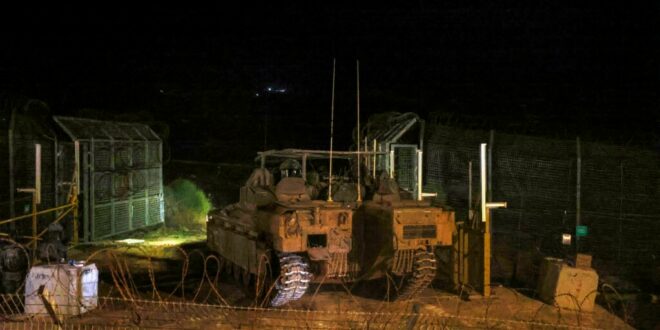Latest Developments
• Assad Ousted as Rebels Take Damascus: In the culmination of a 10-day sweep of Syria, Syrian rebels entered Damascus leading to the December 8 ouster of President Bashar al-Assad and the end of more than half-a-century of the Assad family’s brutal rule. “This is a historic day for the Middle East,” said Israeli Prime Minister Benjamin Netanyahu, adding that the Jewish state extended its hand in peace to all those in Syria who are willing to reciprocate. Jerusalem has, however, voiced concern about the Islamist terrorist roots of many of the presumptive new Syrian leaders. Israel’s ambassador to the United Nations, Danny Danon, cautioned that “these rebels aren’t lovers of Zion.”
• Armistice Deal Collapses: Citing the collapse of the 1974 armistice deal with Syria after Assad’s fall, Prime Minister Netanyahu ordered the IDF to take control of the 155 square mile buffer zone on the Syrian-held side of the Golan that had separated the countries’ armies. The maneuver effectively increased Israel’s hold on Golan territory by more than 30%, from 500 square miles to 655 square miles. Netanyahu, however, hinted at the possibility of a future withdrawal, saying, “This is a temporary defensive position until a suitable arrangement is found.”
• Golan Trench, Fence Fortified: In a bid to prevent a Hamas-style ground attack from Syria, Israel has begun digging a trench system on the Golan Heights designed to stymie terrorists from infiltrating Israel in pickup trucks or on motorbikes. It has also fortified the Gaza security fence. The IDF said on December 8 that further engineering work would be undertaken to buttress those barriers, now codenamed “New East”.
FDD Expert Response:
“One of the main lessons of the October 7 atrocities was that, in a Middle East where peace-loving pragmatists and bloodthirsty terrorists often live cheek by jowl, there is no substitute for strategic depth as a guarantee of security. Though the triumphant Syrian rebels are signaling the end of their territorial ambitions, Israel is rightly taking no chances and is padding out its vulnerable Golan communities with soil and soldiers. The onus will be on Damascus to prove its friendliness first.” — Mark Dubowitz, CEO
“As the conflict in Lebanon appears to be de-escalating, the downfall of Bashar al-Assad has forced the IDF to send troops to bolster Israel’s border with Syria. The security challenge for the IDF is that it does not have a clear understanding of what military posture jihadist groups, and their allies will implement regarding Israel. Historically, Islamist groups have not been friendly to Israel. With the significant number of weapons left behind by Assad’s forces — which will undoubtedly fall into the hands of various armed groups — the IDF is wisely taking action to minimize the potential threat posed by these actors in Syria.” — Joe Truzman, Senior Research Analyst and Editor at FDD’s Long War Journal
 Eurasia Press & News
Eurasia Press & News




